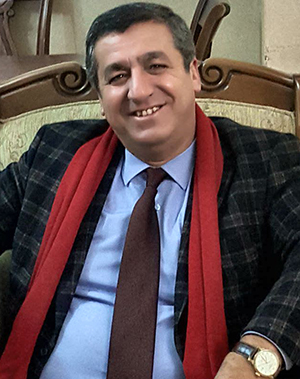
It is the principle of causality (cause and effect) that determines the cycle and balance in life. Like gravity, this principle is invisible, but it is a force that exists within the flow of life.
This force is decisive in all situations, both positive and negative, good and bad.
Therefore, the problems that entangle our lives like ivy are a derivative of irresponsibility and ulterior motives. They are the result of selfishness and moral evil.
Solving problems depends on recognizing mistakes. To recognize one's mistakes, one must first know himself because it is difficult for a person who does not know himself to be a solution or find solutions.
A person who truly knows himself grows in awareness. He becomes more conscious. His conscience is intact. He acts with mercy. He gets rid of the stubborn attitude that dictates, "Me first! Only me!" He steps into the realm of altruism. He becomes a member of that realm. As required for membership, he sees others as his equals. He strives to fulfill the obligations of this membership. He makes a willing effort to redress his shortcomings.
He is no longer the problem but the solution; he creates solutions...
Gaining as much renown as one of the greatest representatives of realist literature as he did as a philosopher and teacher, writer-thinker Tolstoy (1828-1910) is an artist and intellectual in global terms.
In his book, “Resurrection", the famous author, who opposed the classification of people as good or evil, gives the following description: "People are like rivers. The water is always the same, but the river is narrow in some places and broader in others. It flows at a slack pace in one spot and rapidly in another. Its water is sometimes clear, sometimes murky, sometimes cold, sometimes warm. People are the same. Each person carries within him the essence of human traits and flaws. Nevertheless, in any situation, one or the other of these traits manifests itself. At times, a human may behave in ways unfamiliar to himself, as opposed to constantly being the same person.
All fear, arrogance, superiority, and even selfishness must be reined in and defeated so that virtue and understanding can take effect in human beings' erratic mood swings.
As Saint Paul wrote, "For God gave us a spirit not of fear but of power and love and self-control."
In the spirit of true love and self-control, there are virtues like compassion, mercy, fairness, problem-solving, fidelity, helping each other, protection, nurture, guardianship, appreciation, and sharing.
Because love -to love- is not merely a feeling. It is a way of living and doing things with self-control. A loving person appreciates people in his relationships and serves life through a consistent character and self-confidence that he creates within himself. He smiles at life. He defeats every form of conceit and superiority. He sees others as his equals. He strives for a healthy and safe society.
Because he knows himself. He has experienced the inner peace that comes with being himself.
At the end of the day, we reap what we sow, so I wish you all a healthy tomorrow in which all can truly be themselves.
Yusuf Beğtaş
You can also send us an email to karyohliso@gmail.com
Leave a Comment